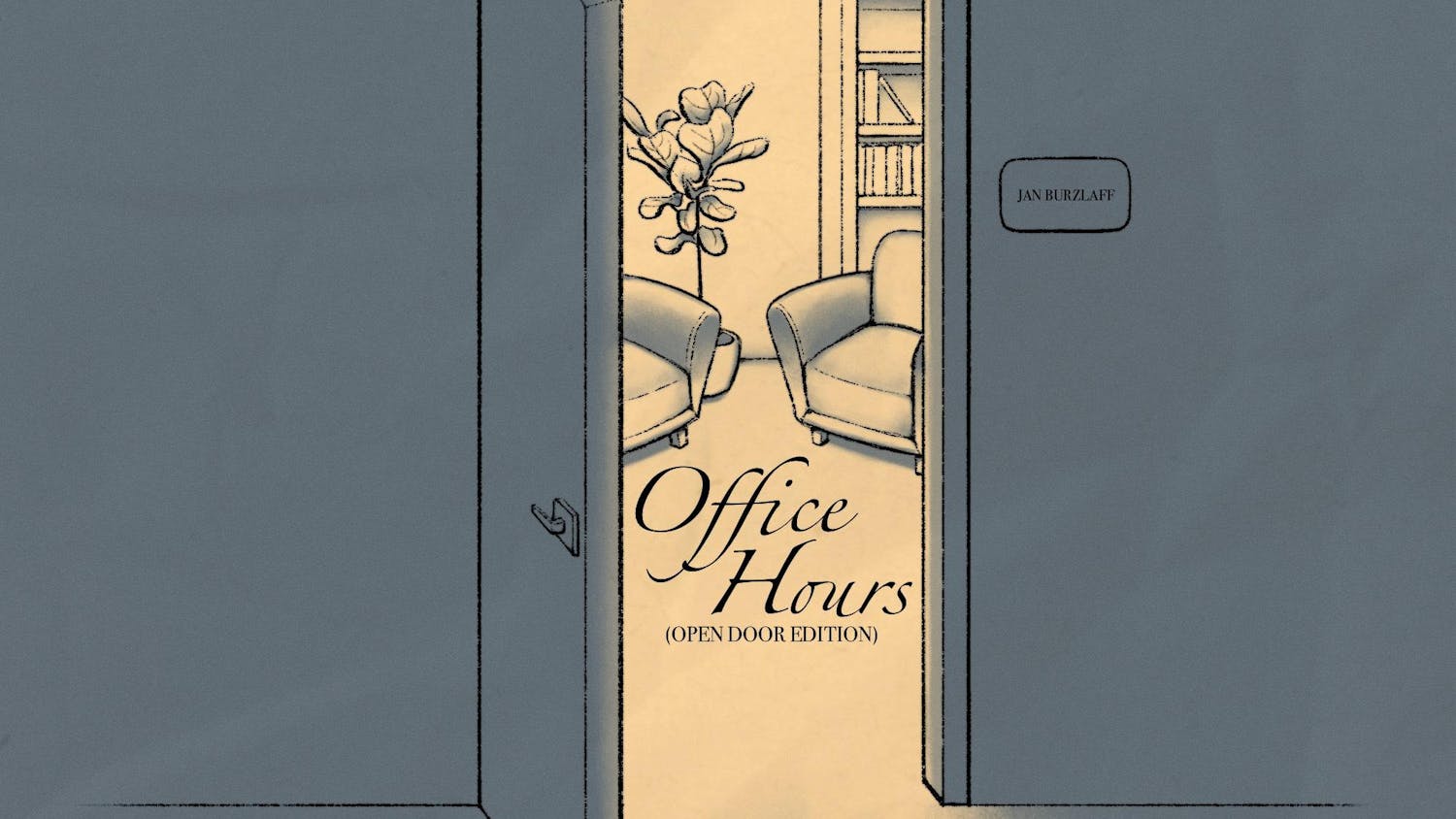We have made it to the final week: the end of classes, study days and the onset of final exams — high-stakes, high-stress, high-volume. Students are calculating what they need to pass, to pull up their average, to hold on to a GPA that feels heavier than it looks on paper. I asked my class — mostly graduating seniors — how many of them were taking at least one final. Nearly every hand went up. Even in their final days here, the pressure is still very real.
And no matter how many times you tell yourself that one exam doesn’t define you, that learning is bigger than a letter grade — somewhere between the Scantron sheet and the exam book, the message gets lost. Not because we don’t want to believe it, but because the system makes it so hard to.
As professors, we don’t mean to reduce our students. Most of us do everything we can to grade with care: rubrics, comments, second reads. We curve when we think it’s fair. We round when the difference is one-tenth of a point. We notice the effort. We see the growth. But the system doesn’t always show that. It converts your work into a number. It places that number next to others. It compares. It calculates. And somewhere in that process, something gets lost — something human.
I remember one of my own final exams in college — an enormous, make-or-break test that counted for 80 percent of the grade. The pressure was intense. I reviewed until late, tried to sleep and couldn’t. I couldn’t turn off my mind and ended up getting just a few scattered hours of rest — almost a nuit blanche, as they call it in French: a white night, not quite sleep, not quite wakefulness. Just nerves, noise and the growing fear that I might forget everything in the morning.
I did fine, in the end. But what stayed with me wasn’t the exam — it was the exhaustion. The sense that I had to be ready, and that anything less might undo weeks of effort. I felt like a score waiting to be written down. That’s what I want to talk about now that we are entering the final week. Final — but not finality. The end of a semester, not the end of the story. These days feel heavy, decisive and sometimes all-defining. But they are only part of the picture — one chapter in a longer, unfolding education.
This is not a call to abandon final exams entirely, though I have never been a fan of them. It’s a call to name what’s missing in them. A grade can’t account for personal context. It doesn’t know who had to take care of a sibling between study sessions. It doesn’t know who’s living in a noisy apartment, or whose heart was broken last week. It doesn’t know who’s battling anxiety and still showed up. In short, the final exam only shows the shape of your answers, not the shape of twelve weeks.
And yet I’ve seen students look at a grade and let it rewrite the story of who they are. A B-minus on a final becomes I’m not good at this. A single missed question becomes a symbol of failure. The weight of a test score bends under the gravity of everything else a student is carrying. If this is you, I want to say — gently, clearly: you are more than your final exam. You always were.
No grade can measure the questions that kept you up thinking. The quiet courage it took to come to office hours. The way you helped a classmate understand something better. The fact that you didn’t give up when it would’ve been easier to. Those don’t get entered into the gradebook. But they are part of your education. And they matter.
I know final exams can feel like endings. But they’re also just snapshots — brief moments of evidence in a much longer story — of your story at Cornell. So if you’re feeling anxious or nervous, I hope you’ll pause before letting a grade tell you who you are. I hope you’ll talk to someone. Don’t let one number shout over everything else you’ve done.
So as finals week begins, here’s what I hope you’ll remember: You are not your grade. You are not your curve. You are still growing. And that — that quiet, ongoing growth — is the point. What’s unfolding in you this week and next is not a final. It’s a beginning.
Here are a few things that helped me, and might help you, too:
- Plan, but gently. Don’t try to cram your entire semester into one night. Make a schedule that includes breaks, meals, even moments to stretch. You’ll remember more if your mind has space to breathe.
- Sleep is not optional. I know it feels like you should stay up and keep reviewing. But the science is clear: Your brain needs rest to retain what you’ve learned. Seven to eight hours isn’t a luxury — it’s strategy.
- Use active recall. Instead of rereading, quiz yourself. Talk through a concept out loud. Teach it to someone else. These methods build real understanding, not just recognition.
- Eat like you care. Finals week is hard on the body, not just the brain. Try to keep some balance — fruits, vegetables, something green. What fuels you physically shapes how you feel mentally.
- Make space for stillness. A short walk. A moment of quiet. A laugh with a friend. These are not distractions — they’re part of how we stay human in the midst of pressure.
Take care of yourself. You’re not just finishing a semester. You’re learning — and that deserves your kindness, too.
The Cornell Daily Sun is interested in publishing a broad and diverse set of content from the Cornell and greater Ithaca community. We want to hear what you have to say about this topic or any of our pieces. Here are some guidelines on how to submit. And here’s our email: associate-editor@cornellsun.com.
Jan Burzlaff is an Opinion Columnist and a Postdoctoral Associate in the Program for Jewish Studies. Office Hours (Open Door Edition) is his weekly dispatch to the Cornell community — a professor’s reflections on teaching, learning and the small moments that make a campus feel human. Readers can submit thoughts and questions anonymously through the Tip Sheet here. He can also be reached at profjburzlaff@cornellsun.com.











